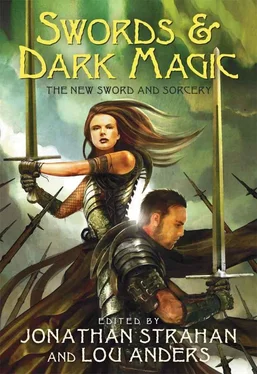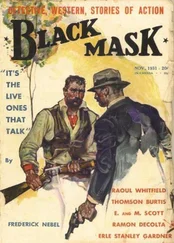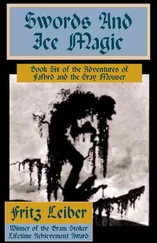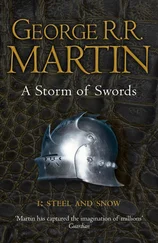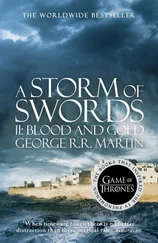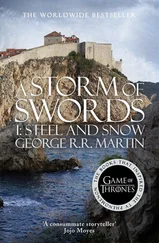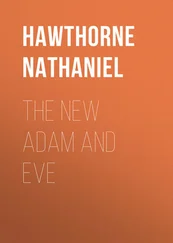The older man tipped his head. “Obliged. And the lad?”
“Whatever he wants.”
Sure enough the boy moved up to stand close beside Huggs, wiping at his nose with a dirt-smeared forearm. His sudden smile showed a row of even white teeth. Huggs shot Wither a glance and aye, things were looking up.
A life on the march sure messed with the bent of soldiers, Wither reflected. Camp followers were mostly people with nothing left to lose and lives going nowhere, and plenty of scrawny orphans and bastards among ’em, and so a soldier’s tastes got twisted pretty quick. She thought the older man looked normal enough. A grave digger like every other grave digger and she’d met more than a few. “Swilly, more ale here.”
The digger was quiet enough as he drank and he showed plenty of practice doing that drinking.
Wither eyed him a moment and then said, “Five graves. Who up and died?”
He glanced at her, finished his tankard, and then stepped back. “Obliged again,” he said. “Snotty, you coming?”
“I’ll stay a bit, Graves.”
“As you like.”
The man left. Wither stared after him, and then turned to say something to Huggs, but she had her hand down the front of the boy’s trousers and he was clearly old enough to come awake.
Sighing, Wither collected her cup and went over to join Skint and Dullbreath. “A piss pit of a town,” she pronounced as she slumped down in a chair. “Captain, you scrape an eye o’er that keep on the hill? Looks like it’s got a walled courtyard. Stables.”
Dullbreath looked at her. “It’s a Jheranang motte and bailey, Wither. That conquest was a thousand years ago. The Jheran Concord’s been dust half that long. I doubt a single inner roof’s standing. And since we’re on the border to the Demon Plain, it was probably overrun in the Birthing Wars. Probably stinks of ghosts and murder, and that’s why it stays empty.”
“It stays empty because this valley’s been forgotten by whoever rules the land, and there’s nothing to garrison or guard. Upkeep on a pile like that is a pig.”
Dullbreath nodded. “That too. Anyway, it should do us fine. Nice and quiet.”
“For a change.”
Skint stirred. “One more round for the lot,” she said, “and then we ride on up.”
Wither rose. “I’ll tell Huggs t’get on with it, then. Boys that age it’s short but often—she’ll just have to settle with that.”
The Broken Moon dragged its pieces above the horizon, throwing smudged shadows on the empty street, as the troop dragged themselves back into their saddles and set off for the ruin.
Graves stood in the gloom between two gutted houses and watched them pass, his shoulders hunched against the night air. He heard a noise behind him and turned. Herribut the blind cobbler edged closer, and behind him was a half-dozen villagers—most of the population, in fact.
“Y’think?” Herribut asked.
Graves scowled. “Ya, the usual. First pick’s mine, as always.”
Herribut nodded. “Lots drawn on after ya. I won.” He grinned toothlessly. “Imagine that! I never had a touch of luck in my whole life, not once! But I won tonight!”
“Happy for ya, cobbler. Now, alla you, go get some sleep, and be sure to stopper your ears. Nobody’s fault but your own if you’re all grainy-eyed and slow come the morning pickings.”
They shuffled off, chattering amongst themselves.
Exciting times in Glory, and how often could anyone say that without a bitter spit into the dust and then a sour smile? Graves stepped out into the street. The soldiers had reached the base of the hill, where they had paused to stare up at the black, brooding fortification.
“Go on,” Graves whispered. “It’s quiet. It’s perfect. Go on, damn you.”
And then they did, and he sagged in relief.
Nobody invited any of this, so nobody was to blame, not for anything. Just came down to making a living, that’s all. People got the right to that, he figured. It wasn’t a rule or anything like it, not some kingly law or natural truth. It was just one of those ideas people said aloud as often as they could, to make it more real and more true than it really was. When the fact was, people got no rights to anything. Not a single thing, not air to breathe, food to eat, ale to drink. Not the sweet smile between the legs, not a warm body beside you at night. Not land to own, not even a place to stand. But it made it easier, didn’t it, saying that people got the right to a living, and honest hard work, like digging graves and carving capstones, well, that earned just rewards because that’s how things should be.
The boy came out from the bar, weaving his way into the street. The woman had gotten him drunk besides stained in the crotch.
Graves set out to collect Snotty and take him to his solitary shack close to his own house. Couldn’t be nice, he imagined, to end up just being abandoned by his ma and da when they were all passing through, and left to survive on his own. That was three years back, and Graves knew the boy had latched on to him to fill the holes in his growing up, and that was all right. To be expected. The boy would be in no shape for anything come the morning, but Graves would pluck a thing or two for him anyway. It was the least he could do.
The cobbled ramp climbed the hillside in three sharp switchbacks that would have cramped any supply wagon and likely made a mess of stocking the keep. The path was overgrown and cluttered with chunks of masonry, but otherwise picked clean.
Sergeant Flapp shifted uncomfortably in the saddle as his horse clumped up the sharp incline. That whore still had teeth, damn her, and that ring had been way too small. His snake felt strangled. He noticed, in passing, that all the anchor rings on the walls to either side had been dug out and carried off, leaving rusty-ringed holes. “They stripped this place right down,” he said. “Doubt we’ll find a single door, a single hinge or fitting. And now they’ll probably sneak up and try and rob us tonight.”
“They wouldn’t be that suicidal,” Wither said.
Flapp belched. “Maybe not. That Slim was one eager whore, though.”
They rounded the last turn and came within sight of the gate. The portcullis was gone, as expected, all that iron, and the arched passageway yawned black as a cave mouth. Flapp followed Skint in. The drop chutes and murder holes were all plugged with muddy, guano-streaked martin nests, and they could hear the birds moving restlessly as they rode past.
The passage opened out to a yard overgrown with brambles. A stone-lined well marked the center, all its fittings removed. To the right was a low building running the length of one high wall. “Stables,” Flapp said. “But we’ll have to use the last of our fodder.”
Skint pointed to a stone trough close to the stables. “Wither, check that, make sure it’s not cracked. Huggs, collect up the water gourds and rig up a rope—let’s see what we can scoop from the well. Flapp and Dullbreath, you’re with me. Let’s check out the main house.”
That building was built to withstand its own siege. No windows on the lower floors, a narrow aperture preceding the doorway, arrow slits on the two squat towers flanking the inner facing. The slanted roof, they saw, was slate-tiled and holed through here and there.
“I’d wager the towers are solid and probably cleaner than anywhere else,” said Flapp.
They dismounted. Walked toward the entrance.
The slow drumbeat of horse hoofs on the cobbles had awakened them, and now, in scores of chambers in the keep, figures stirred. Long, gnarled limbs unfolded, slitted eyes glittered as heads lifted, jaws stretching open to reveal rows of thin, vertical fangs. Twin hearts that had thumped in agonizingly slow syncopation for months now thudded faster, rushing blood and heat through tall, rope-muscled bodies. Talons clicked at the ends of unfurling hands.
Читать дальше
